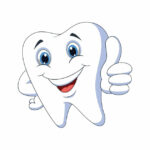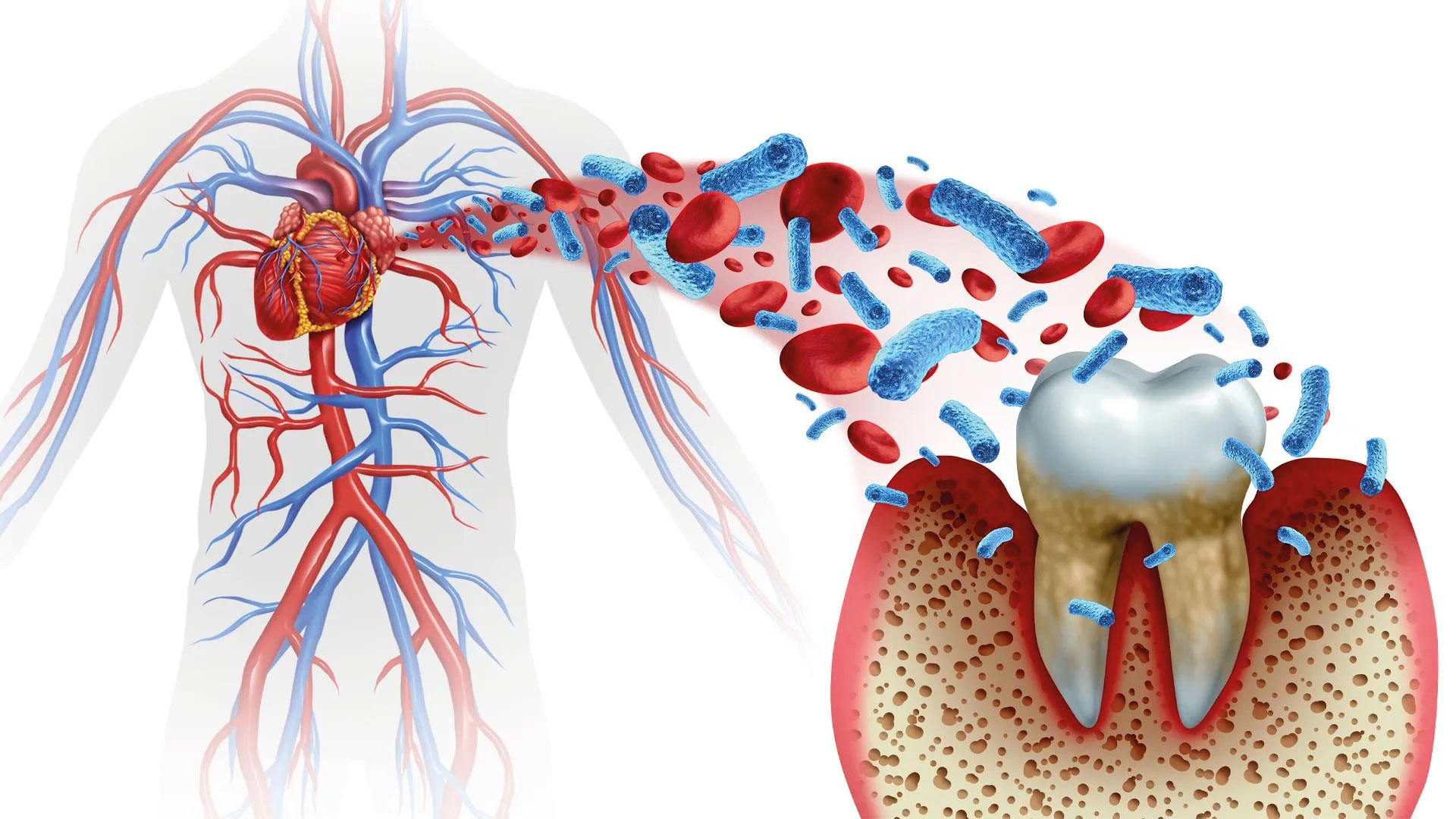Introduction
Taking care of your oral health does not only mean brushing your teeth and attending regular check-ups but also ensuring that your dentist is fully informed about your medical conditions. What happens in your body can directly affect the health of your mouth, making it crucial to communicate any existing illnesses or ongoing treatments.
Certain medical conditions, such as diabetes, cancer, or the use of medications like bisphosphonates, can alter the way the body responds to dental treatments. Without the right information, even a simple procedure could carry avoidable risks. That is why sharing a complete overview of your health with your dentist is not just recommended but necessary to receive safe and personalized care.
Being aware of how medical conditions affect dental health and communicating them clearly helps prevent complications, improves the quality of treatments, and ensures optimal results. Your oral health is an integral part of your overall well-being, and maintaining clear communication with your dental professional is the first step in protecting it effectively.
The Relationship Between General Health and Oral Health
Oral health is not just about teeth and gums—it is closely connected to overall well-being. Many people tend to consider the mouth as separate from the rest of the body, but medical conditions that dentists need to know about can significantly impact healing, infection risks, and the success of dental treatments.
Chronic diseases, metabolic imbalances, and pharmaceutical therapies can alter how the body responds to dental care, making clear communication between patient and dentist essential. Understanding these interactions is key to taking preventative measures, reducing risks, and improving long-term treatment outcomes.
The Mouth as a Reflection of Our Health
The mouth is one of the first indicators of systemic health. Many medical conditions initially manifest through oral symptoms, such as gum inflammation, dry mouth, or difficulty healing after dental procedures.
A concrete example is diabetes, a condition that directly affects oral health. Diabetic patients often experience reduced tissue healing capacity, an increased risk of infections, and a higher likelihood of developing periodontitis. Without proper management, these factors can severely compromise the success of dental treatments. It is therefore crucial that the dentist is informed about oral health in diabetic patients to adjust treatments safely and effectively.
Another significant case is autoimmune diseases, which can cause dry mouth and changes in the oral mucosa. Without a proper diagnosis and targeted therapy plan, patients may experience difficulties in chewing and an increased risk of cavities. Informing the dentist about these conditions allows for tailored treatments to preserve long-term oral health.
The Impact of Medical Conditions on Dental Treatments
When undergoing a dental treatment, the body’s response largely depends on the patient’s overall health. Clear communication about medical conditions with the dentist enables the adoption of preventative strategies and the selection of materials and techniques best suited to the patient’s medical profile.
For example, patients undergoing cancer therapies may experience changes in saliva production, increasing the risk of dry mouth and cavities. By being informed, the dentist can recommend supportive treatments to keep the oral cavity hydrated and protected, ensuring maximum safety and comfort during care.
Similarly, taking specific medications, such as anticoagulants or immunosuppressants, can affect surgical interventions and post-operative healing. It is essential that the dentist is aware of these therapies to adopt specific protocols that minimize complications and enhance treatment outcomes.
The use of bisphosphonates, in particular, can impair bone healing after procedures such as tooth extractions or implants. In these cases, patients must share this information with their dentist to avoid treatments that may increase risks.
Understanding the connection between general health and oral health helps prevent future issues and allows for customized care. Transparent communication about medical conditions with the dentist is the key to protecting your smile and ensuring safe and effective dental treatments.
Medical Conditions the Dentist Needs to Know
To ensure safe and effective dental treatments, it is essential to inform the dentist about medical conditions that may affect oral health. Some illnesses and medical therapies can interfere with tissue healing, increase the risk of infections, or affect the body’s response to materials used in dental procedures. Let’s explore the most relevant conditions to report.
Diabetes and Oral Health
Diabetes is a condition that directly impacts oral health. Diabetic patients have a higher risk of gum infections, reduced healing capacity, and an increased likelihood of developing periodontitis. Without proper management, these issues can compromise the success of treatments such as dental implants, extractions, or gum disease therapies.
Informing the dentist about diabetes allows them to adjust treatment techniques and implement specific protocols to **protect oral health in diabetic patients**, minimizing complications and promoting optimal healing.
Cancer and Medical Therapies
Patients undergoing cancer treatments often experience side effects that affect oral health. Chemotherapy and radiation therapy can cause dry mouth, increase the risk of cavities, and weaken oral tissues, making them more vulnerable to infections and lesions.
If a patient is undergoing oncological therapy, the dentist must be informed to implement targeted strategies that protect oral health. **Oral health in cancer patients** requires special attention, including treatments for xerostomia (dry mouth) and personalized protocols to prevent infections.
Medications and Their Effects on the Mouth
The use of certain medications can directly impact dental treatments. For example, bisphosphonates, commonly prescribed for osteoporosis and some forms of cancer, can interfere with bone healing and increase the risk of post-surgical complications, particularly in cases of extractions and surgical procedures.
Informing the dentist about these medications helps assess alternative treatments and avoid procedures that might pose additional risks. Similarly, anticoagulant medications, which affect blood clotting, must be disclosed before undergoing dental surgery or extractions to prevent excessive bleeding.
Sharing this information with the dentist is crucial for customizing treatments and **minimizing risks associated with medical conditions**. Every detail regarding a patient’s overall health contributes to improving the safety and effectiveness of dental care.
Why Communication Is Crucial for Extractions and Other Treatments
Informing the dentist about your medical conditions is important not only for tooth extractions but for all dental procedures. Understanding a patient’s general health allows the professional to adjust treatments, reduce risks, and enhance overall outcomes.
The Importance of Sharing Medical Conditions with Your Dentist
Every dental procedure, from routine cleanings to implants, can be influenced by systemic factors. Disclosing medical conditions to the dentist helps prevent complications, ensures better healing, and allows for the selection of safer techniques.
A concrete example involves patients taking bisphosphonates for osteoporosis or cancer treatments. These medications can increase the risk of bone necrosis following a tooth extraction or implant placement, making it essential for the dentist to be aware of them and follow specific protocols.
Similarly, individuals on anticoagulant therapy should inform their dentist before undergoing surgery to avoid excessive bleeding and ensure treatment safety.
Personalizing Treatment Based on Patient Health
An effective dental approach must always be tailored to the specific needs of each patient. Understanding medical conditions that affect oral health enables the dentist to adjust the choice of materials, techniques, and medications used during treatment.
For example, dentists treating diabetic patients can implement precautionary measures to reduce the risk of gum infections and promote faster healing. Those experiencing dry mouth due to medication use may receive specialized treatments to protect enamel and reduce tooth sensitivity.
Transparent communication with the dentist is the key to receiving personalized care, avoiding potential risks, and optimizing treatment effectiveness. Ensuring that the dental professional has all the necessary health information helps protect your smile and provides peace of mind during every procedure.
How to Prepare for Your Dental Visit: Practical Tips
Preparing properly for a dental visit can make a significant difference in the quality of treatment received. Communicating medical conditions to your dentist before any procedure allows for personalized care and reduces risks. By following a few simple steps, you can approach your appointment with greater awareness and ensure a treatment plan tailored to your needs.
What to Share With Your Dentist
To help the dentist adjust treatments based on your medical conditions, it is useful to prepare a detailed list that includes:
- Chronic conditions such as diabetes or autoimmune diseases, which may affect oral health.
- Ongoing treatments, including anticoagulant medications, bisphosphonates, or cancer therapies.
- Allergies to medications or materials used in dental procedures.
- Previous dental surgeries or complications experienced in the past.
Informing your dentist about your medical conditions helps plan the visit effectively, prevent unexpected issues, and ensure the highest level of safety during treatment.
Useful Questions to Ask Your Dentist
During the appointment, it is beneficial to ask targeted questions to clarify doubts and receive personalized advice. Some examples include:
- What precautions should be taken to protect oral health in light of specific medical conditions?
- Are there safer alternatives to traditional procedures for my health profile?
- What daily habits can help prevent dental problems related to my condition?
Maintaining an open dialogue with your dentist allows you to receive tailored dental care with protocols designed to meet individual needs. Proper communication of medical conditions is the first step in ensuring safe and effective dental treatments.
Conclusion: Oral Health Is a Team Effort
Taking care of your oral health is not just about following good hygiene habits—it also requires maintaining open communication with your dentist regarding your **medical conditions**. Every patient has unique needs, and providing your dentist with relevant health information allows for personalized treatments and minimizes risks associated with dental procedures.
We have seen how conditions such as diabetes, cancer, and certain medications can impact oral health and influence how the body responds to dental treatments. Proper communication of medical conditions to your dentist helps optimize every procedure, ensuring safer healing and preventing complications.
Building a trusting relationship with your dentist and sharing all relevant health details improves the effectiveness of treatments and helps protect your smile long-term. Every dental intervention should be adapted to the patient’s specific needs, and the first step in receiving safe care is providing the professional with a complete overview of your medical history.
Your oral health deserves personalized attention! Contact us today for a first visit, where we will discuss your medical conditions and find the best treatment plan for your smile.
📞 To book an appointment, call our reception at +357 26 946863.









